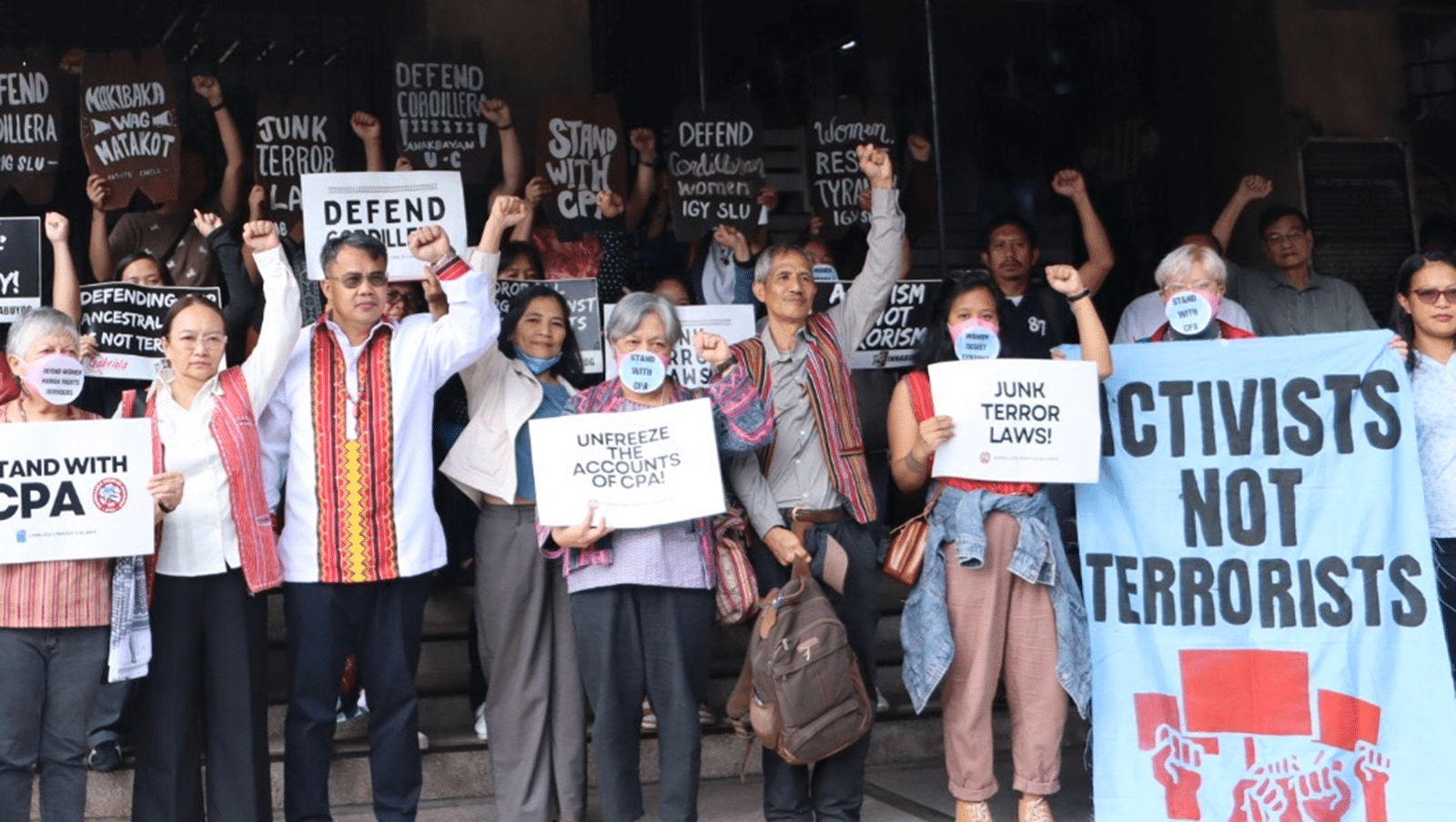
JUNK TERROR LAW Baguio-based activists belonging to the Cordillera Peoples Alliance hold a picket outside the Baguio Justice Hall on Monday to denounce the antiterrorism law, which four of its members are questioning before a local court after they were declared terrorists by the Anti-Terrorism Council last year “without due process.” —Cordillera Peoples Alliance photo
BAGUIO CITY, Philippines — Lawyers from the Office of the Solicitor General (OSG) on Monday questioned allegations of government harassment committed against four Indigenous Filipino activists who have challenged the Anti-Terrorism Council (ATC) and the Anti-Money Laundering Council (AMLC) before a Baguio court for designating them as terrorists “without due process” on July 7 last year.
The OSG lawyers took this line of defense before Baguio Regional Trial Court (RTC) Judge Cecilia Corazon Dulay-Archog, who was granted permission by the Supreme Court in March to hear the petitions for certiorari and writ of preliminary injunction filed by Cordillera Peoples Alliance (CPA) chair Windel Bolinget and members Sarah Abellon-Alikes, Jennifer Awingan-Taggaoa, and Stephen Tauli.
Early this year, the Supreme Court ruled only the Court of Appeals can hear litigation of cases involving the Anti-Terrorism Act of 2020 (Republic Act No. 10592). But since its guidelines were enforced after Dulay-Archog assumed jurisdiction over the activists’ complaints, the Baguio RTC was allowed to hear the case.
READ: Baguio activist group asks SC to lift assets freeze
The activists argued the ATC violated their constitutionally guaranteed rights and asked the RTC to lift the AMLC order freezing their assets that have impacted the lives of their children and other family members.
All four activists were lined up to testify against the ATC.
The OSG made a series of questions to establish that the individuals accused of harassing the four activists before their terrorist designation had no clear ties with the government.
Abellon-Alikes, who also testified in court, was pressed by an OSG lawyer for neglecting to verify whether people who reportedly harassed her and the other activists were state employees.
The government lawyer cited social media posts from the CPA that were critical of the government, which they said proved that Bolinget’s rights to free expression have not been curtailed.
The OSG also pointed out during Bolinget’s cross-examination that the government has not filed criminal charges against the four activists, despite their terrorist designation.
Threats
Bolinget said “no” when asked if any government agency or law enforcement personnel “prohibited [him] from coming out of [his] house and from going anywhere.”
When asked why he would fear for his security, Bolinget said being declared a terrorist “was the worst thing to happen in my life.”
He said that as an activist, he faced numerous lawsuits in various parts of the country that accused him of rebellion and even murder, which the courts eventually dismissed. But to be designated as a terrorist brought harm to his family, “because I am now an enemy of the state,” Bolinget told the court.
Tauli and Awingan-Taggaoa are set to testify on the second trial day on Sept. 20.
The CPA has a separate lawsuit against ATC and AMLC that is pending before the Supreme Court concerning its assets, which were also frozen, although the organization was not designated as a terror group by the ATC.